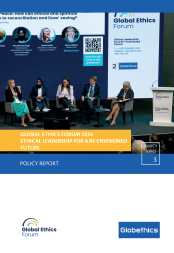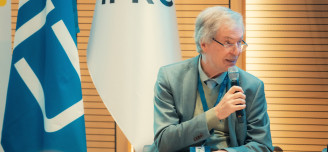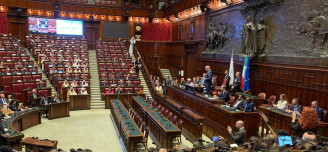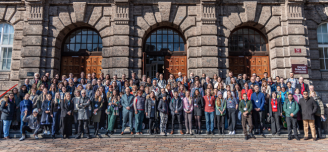Resilience amid war: Insights from the Ukrainian crisis
The devastating effects of the war in Ukraine come into sharper focus when experienced firsthand, close to the conflict's epicentre. The horrors recounted by those who live through it daily leave an indelible mark. A recent international consultation hosted in Warsaw underscored these realities. The event, organised by the Conference of European Churches (CEC) in collaboration with the Polish Ecumenical Council, brought together Ukrainian representatives and European leaders to share experiences and explore pathways to peace. Globethics President Dietrich Werner represented the organisation as a panelist.
Among the stories shared, one particularly haunting account was of a young boy who leapt into his father's grave during a funeral conducted by a chaplain. These moments of profound grief and pain serve as a stark reminder of the human cost of war. Other accounts detailed the daily struggles faced by Ukrainians: prolonged power outages due to bombings, children spending more time in bomb shelters than schools, and the deep psychological scars caused by constant sirens and airstrikes.
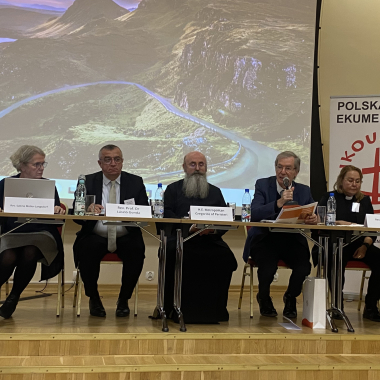
The consultation was part of the Pathways to Peace initiative, aimed at fostering justice, reconciliation, and peace in the region. Key objectives of the program include building networks of leaders and intellectuals for peace preparation, advocating for the protection of cultural and religious heritage, and enhancing dialogue around the principles of just peace.
The statistics shared during the consultation were staggering:
- Over 12 million people displaced within Ukraine.
- More than 9 million refugees forced to leave the country.
- Thousands of children killed or severely injured.
- Critical infrastructure, including 1,100 health facilities and 2,700 schools, destroyed.
These figures represent more than numbers; they reflect lives upended and futures uncertain. The scale of suffering is not just a regional crisis but a global concern, marking the largest military conflict in Europe since World War II.
Ethical challenges in wartime
The consultation delved into the ethical dilemmas posed by war. Ukrainian church leaders shared their struggles in balancing immediate needs with long-term values. For instance, they discussed challenges such as:
- Deciding how to allocate limited resources during evacuations.
- Navigating tensions between pacifist principles and the need for armed defense.
- Addressing the ideological threats of propaganda while preserving freedoms, including religious freedoms.
These decisions highlight the complexity of maintaining ethical integrity in a conflict defined by relentless violence and oppression.
Lessons in resilience and persistence
A key takeaway from the discussions was the steadfast commitment of Ukrainians to justice, peace, and dignity, even in the face of overwhelming adversity. This resilience underscores the importance of holding onto ethical values during crises. Ukrainian church leaders warned against pursuing a "cheap peace" that ignores the need for justice and truth. Genuine reconciliation, they emphasised, requires addressing issues such as reparations and accountability.
The work of organisations like Globethics and CEC plays a crucial role in fostering ethical dialogue and supporting efforts for a just peace. This is not a short-term endeavour. The impact of such work may only be visible decades later, influencing future generations.
A call for long-term vision
In a world often driven by immediate returns, the consultation highlighted the necessity of a long-term perspective. Ethical principles and peace-building efforts require patience and persistence. As seen in Ukraine, even amidst profound suffering, hope and determination can inspire transformative change.
By continuing to support initiatives that uphold human dignity and justice, institutions like Globethics aim to ensure that the seeds of peace sown today will bear fruit in the future. This commitment reflects the belief that enduring values can outlast the darkest of times, offering a foundation for renewal and reconciliation.
Read related resources
- Dietrich Werner's article Ethics of Peace in the Context of Russia's War Against Ukraine: 12 Proposals in Russian
- 10 principles of just peacemaking according to Glen Stassen
- World Council of Churches (WCC) report from the Warsaw consultation
- 12 Proposals for a negotiated peace by Christoph Stückelberger
- World Council of Churches: Just Peace Companion Second Edition
